“Audiences won’t do what a brand tells them – maybe 10 years ago, but not today”
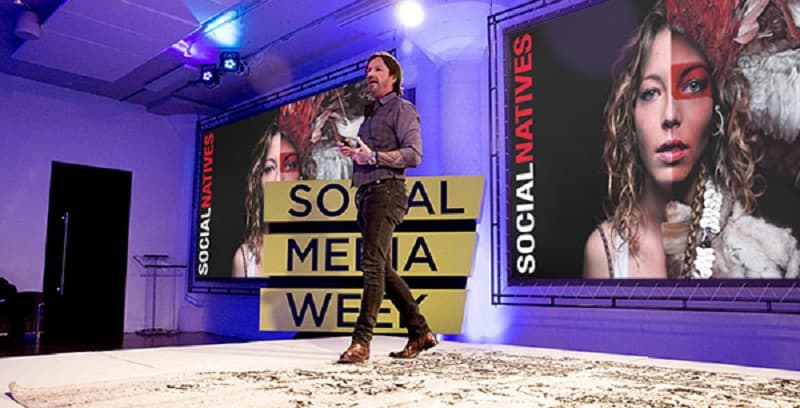 Patrick Mulford, CEO of Clock, on stage at Social Media Week conference © clock.co.uk
Patrick Mulford, CEO of Clock, on stage at Social Media Week conference © clock.co.uk
To listen to Patrick Mulford, CEO of Clock, talk about his career is to listen to the progression of the digital publishing industry itself. His career began at one of the first independent digital agencies, a company called Graphico, where he headed up their gaming initiative. “From then, it's been a journey from one agency to another as digital has evolved,” he begins.
“In the beginning websites were simply another one-way conversation between brand and consumer - although people were now able to compare and contrast similar products online. But as technology developed it became a two-way relationship, with customers providing feedback, and voting for the content that resonated with them via engagement. Social provided a surrogate for the traditional social networks that had become fragmented over time, and empowered people to share the content they loved with their friends.
Patrick explains that social media has enabled us to connect globally in a way that we couldn't until now: “Even people with obscure interests can connect with millions of like-minded individuals with the same passions around the world. It's become multi-dimensional,” he muses. “It's not just about a brand engaging with a customer anymore. There are so many more facets to any given subculture.
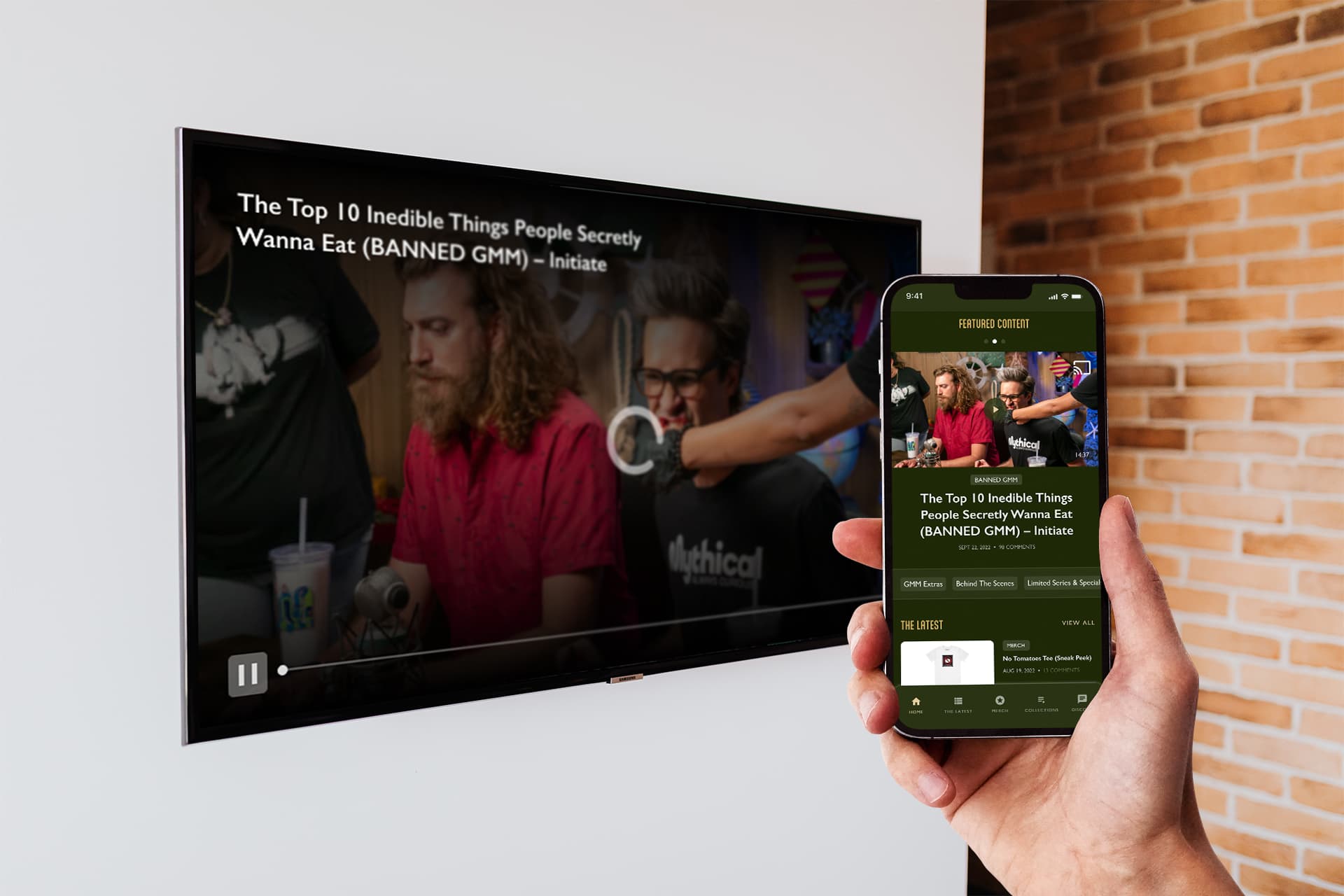 Screen casting Rhett and Link of Good Mythical Morning, one of Clock's products
Screen casting Rhett and Link of Good Mythical Morning, one of Clock's products
Patrick, who has been at Clock for almost three years, having lived in Los Angeles for almost a decade (where he was CEO of theAudience and Hummingbird Studios) has enjoyed the development of digital in this way because it enables collaboration across different landscapes: “You have car brands doing partnerships with fashion brands, record labels, influencers, artists - multiple touchpoints in a cultural mosaic. That gives you really interesting potential to tell stories in ways that we haven't been able to before,” he smiles.
He believes that Clock has a role in re-imagining what can be done in future, based on the fact that people don't live separate offline and online lives anymore. “It's just one big experience that blends the two. Different bits of technology enable people to engage with one another and live a more enriched life,” Patrick tells me.
The beauty of years of data
As digital agencies go, Clock is a rare beast: it’s over 20 years old, and over that time it’s maintained its size and independence. “Traditionally, in this industry, you start an agency and you build it. Maybeit fails then you think of something else to do with your life, but if it succeeds there are normally two trajectories. You either get bigger and bigger to the point where world domination becomes your purpose, or you get bigger and bigger until one of those other dominant agencies sees you and thinks, ‘Oh, I'd like that for my empire!’,” Patrick laughs.
Patrick says he prefers to work with “visionary founders” who want to push the industry forward. “As these founders establish a foothold in new territory, I’ve found myself exploring the peripheries. It's almost like I've been surfing a wave: as the energy comes out of one wave, I've seen another swell pick up and I jumped to the new wave.
“Clock is interesting in that it's been one long wave and that means you can take clients on that journey for decades. The founder, Syd Nadim, is still active in the business today, and has no interest in selling Clock – ever.
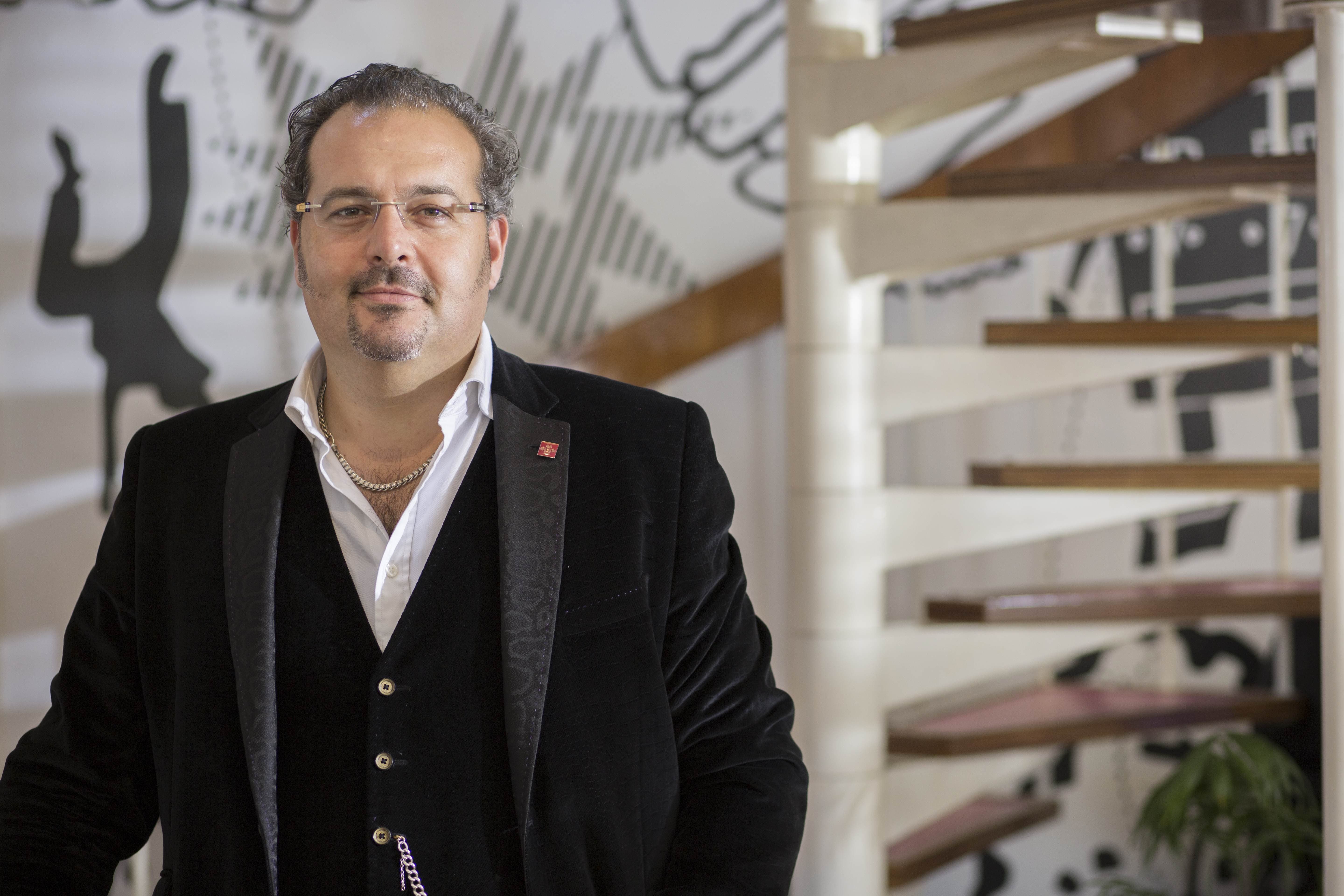 Clock founder, Syd Nadim © clock.co.uk
Clock founder, Syd Nadim © clock.co.uk
“We have longtime clients who trust us to experiment. You have an opportunity to try new things,” Patrick continues. “Sometimes it's very difficult to articulate what we do as a company because ultimately, we don't work with a particular department. We don't offer a particular service, we don't even specialize in a particular technology. We work with clients that have a business challenge, and we find a technical solution, through human insight and creativity.”
He explains that, even though the solution to a challenge is always different, “When you dig down to it, it's all about connecting with people.” He explains it's about understanding an audience, understanding their behavior, and making a connection. “Our work is less about the tech; it's about understanding people. Tech is just the vehicle,” he adds.
Selling feelings and an identity
The Clock team are very adaptable and lend their talents to a number of different technologies. “You have to understand the audience, understand which insight will lead you to a solution while also adding value for the customer. Only then do we ask, ‘Right, what's the most appropriate platform? What technology is going to deliver this best?’,” he says.
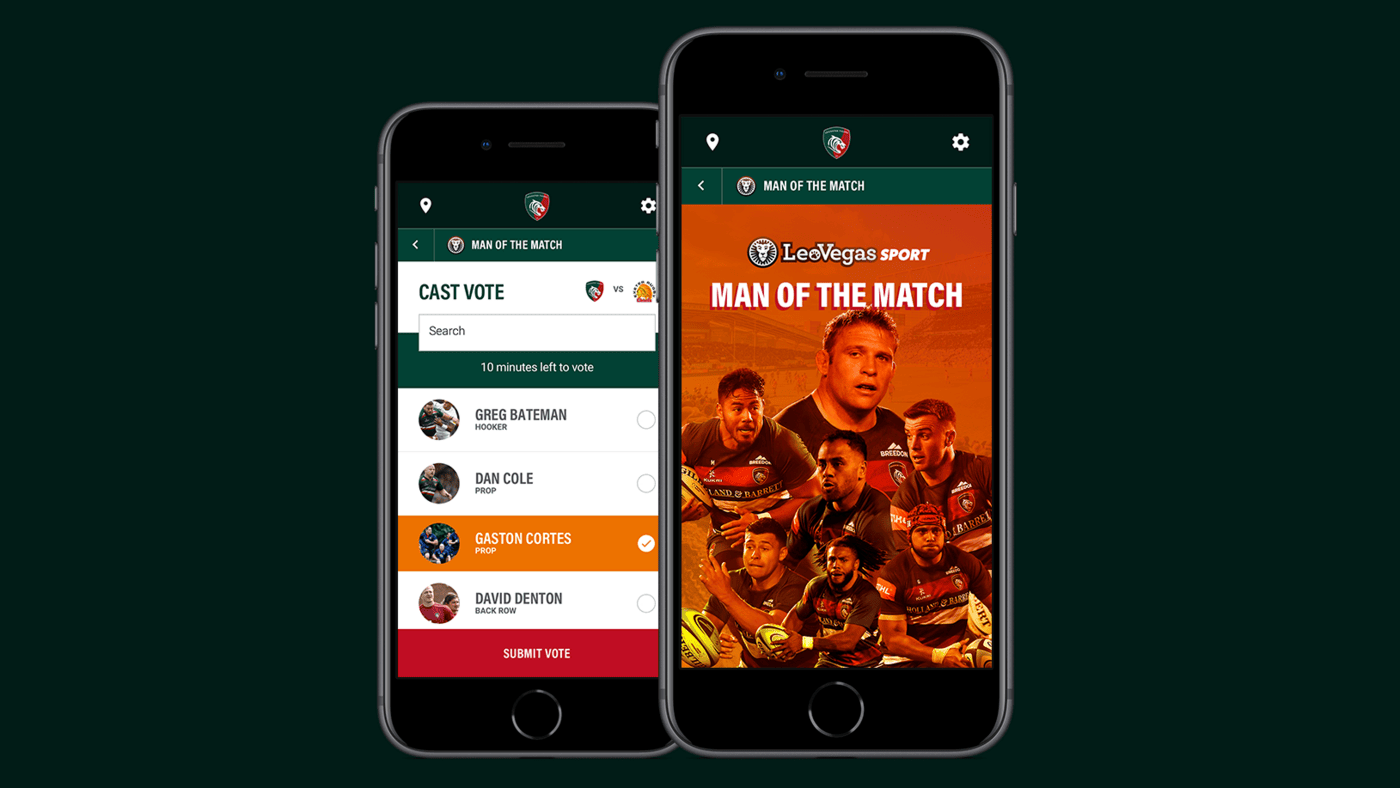 The app for the Leicester Tigers rubgy team, one of Clock's products © clock.co.uk
The app for the Leicester Tigers rubgy team, one of Clock's products © clock.co.uk
He elaborates that the great thing about working with larger clients for a long period of time is that you learn plenty about what it is about their brands that excites people, what engages them in the 21st century, what makes people loyal, and “what makes people tune in on a regular basis”.
“For so many brands, it's important to retain and deepen the relationship with their readership or clients. We have a limited number of icons on our phone home screen so you've got to be giving people something vital to their lives. They have to identify very closely with your brand – it almost has to be part of their identity.
“Disney does that very well; so do Starbucks and Nike. All the most followed social brands don't sell a product; they sell feelings. They sell a way of seeing the world: Red Bull is a fizzy drink company, but the minute you close your eyes and think ‘Red Bull’, you see someone jumping out of a plane. Red Bull has morphed from a consumer product to a media property, which is a very different proposition.”
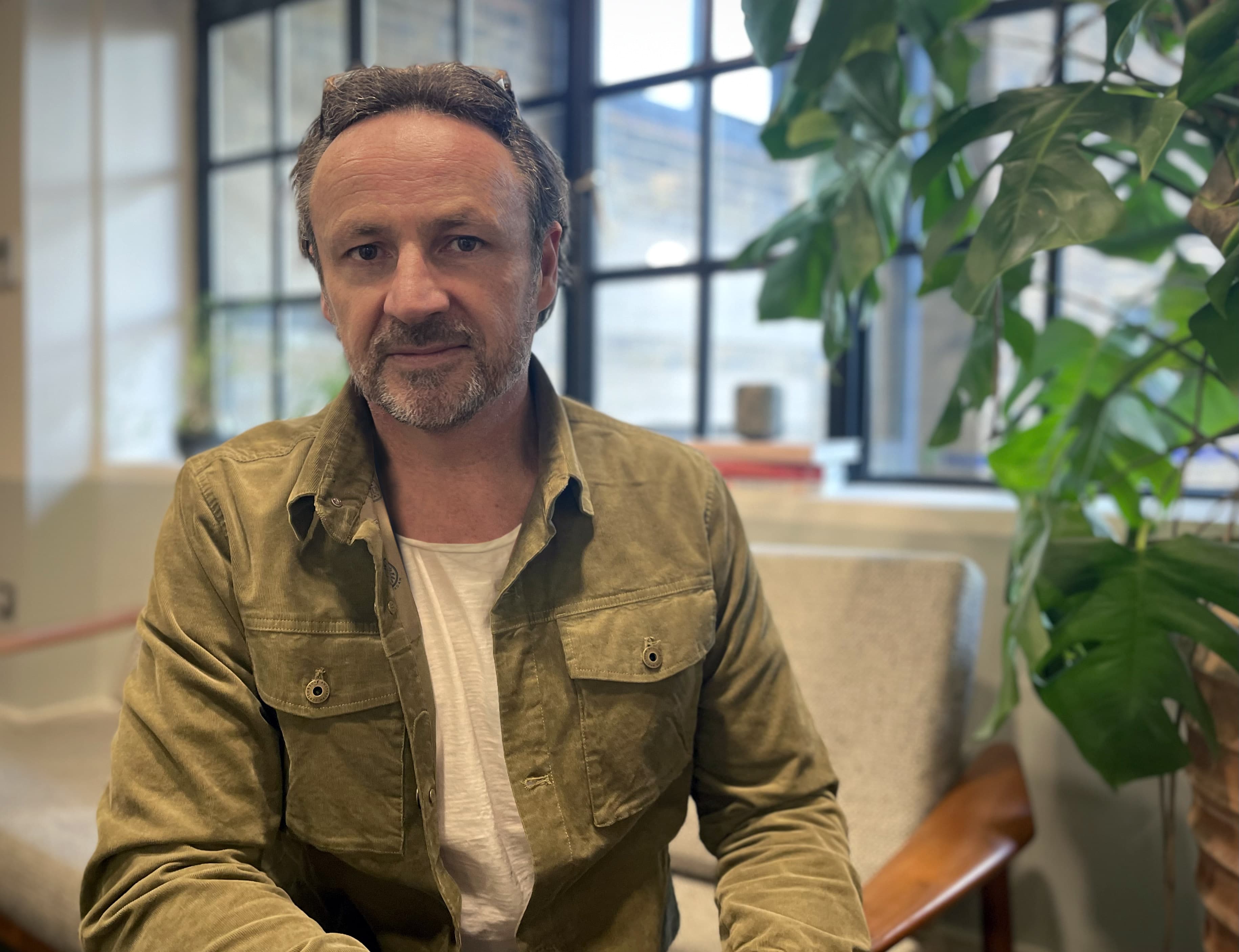 Patrick wants to know what makes people tune in on a regular basis © clock.co.uk
Patrick wants to know what makes people tune in on a regular basis © clock.co.uk
“Continually retaining the attention of fans and growing audiences is always a challenge. They're not gonna do anything for free. They're not gonna do what the brand tells them to do – maybe 10 years ago, but not today. We have to create ‘reciprocal value exchanges’. If Clock finds ways to create value for consumers, and in the meantime the brand meets its objectives, it’s a win-win situation.
More information
To read more about Patrick, and Clock's products and services, go to clock.co.uk.
Subscribe for updates
Stay up to date on Memberful's latest product updates, insights, and teaching centered around growing your community.
Have an audience?
Customers like Mythical (28+ million subscribers) rely on Memberful to power their membership communities.
Get started for free